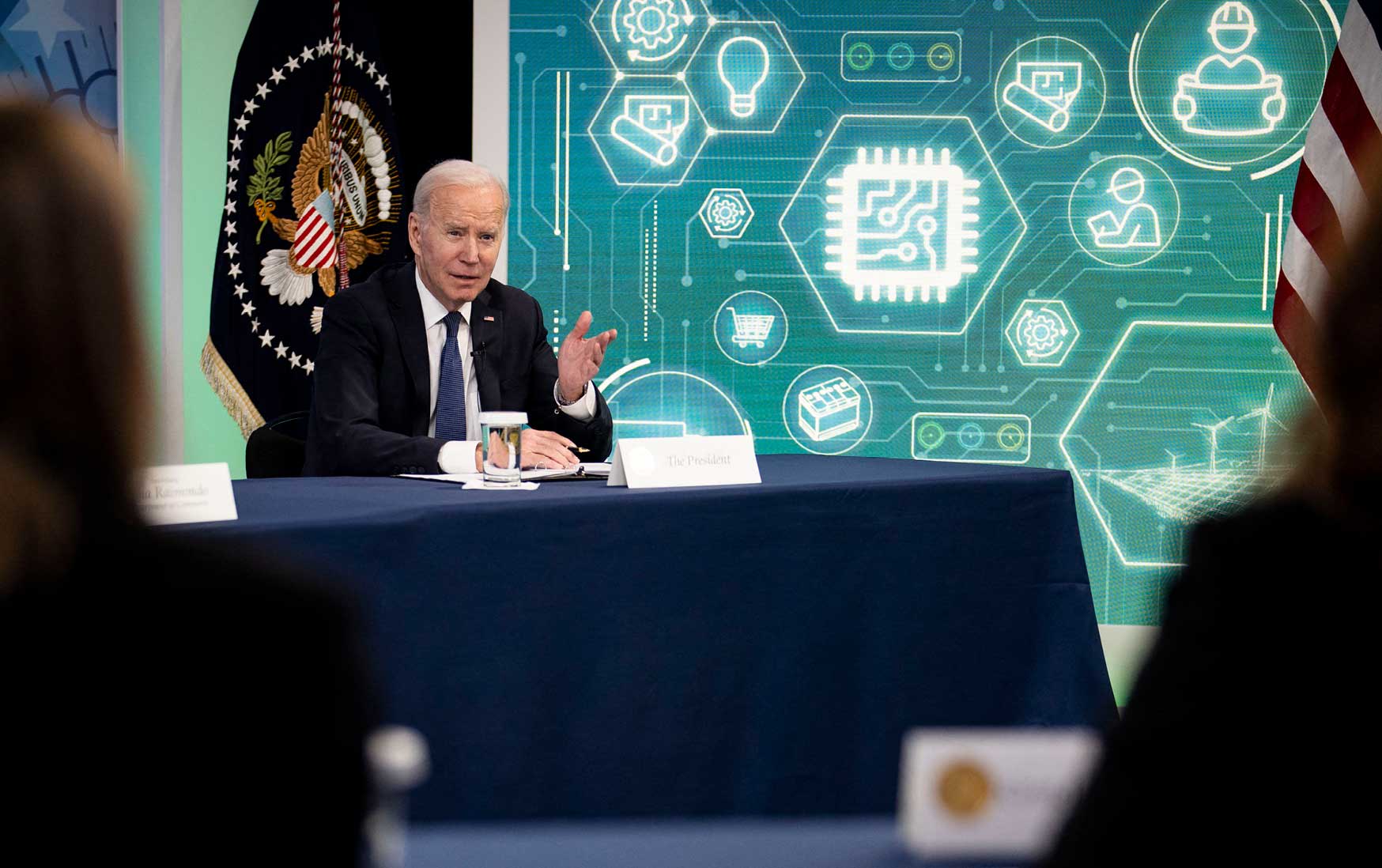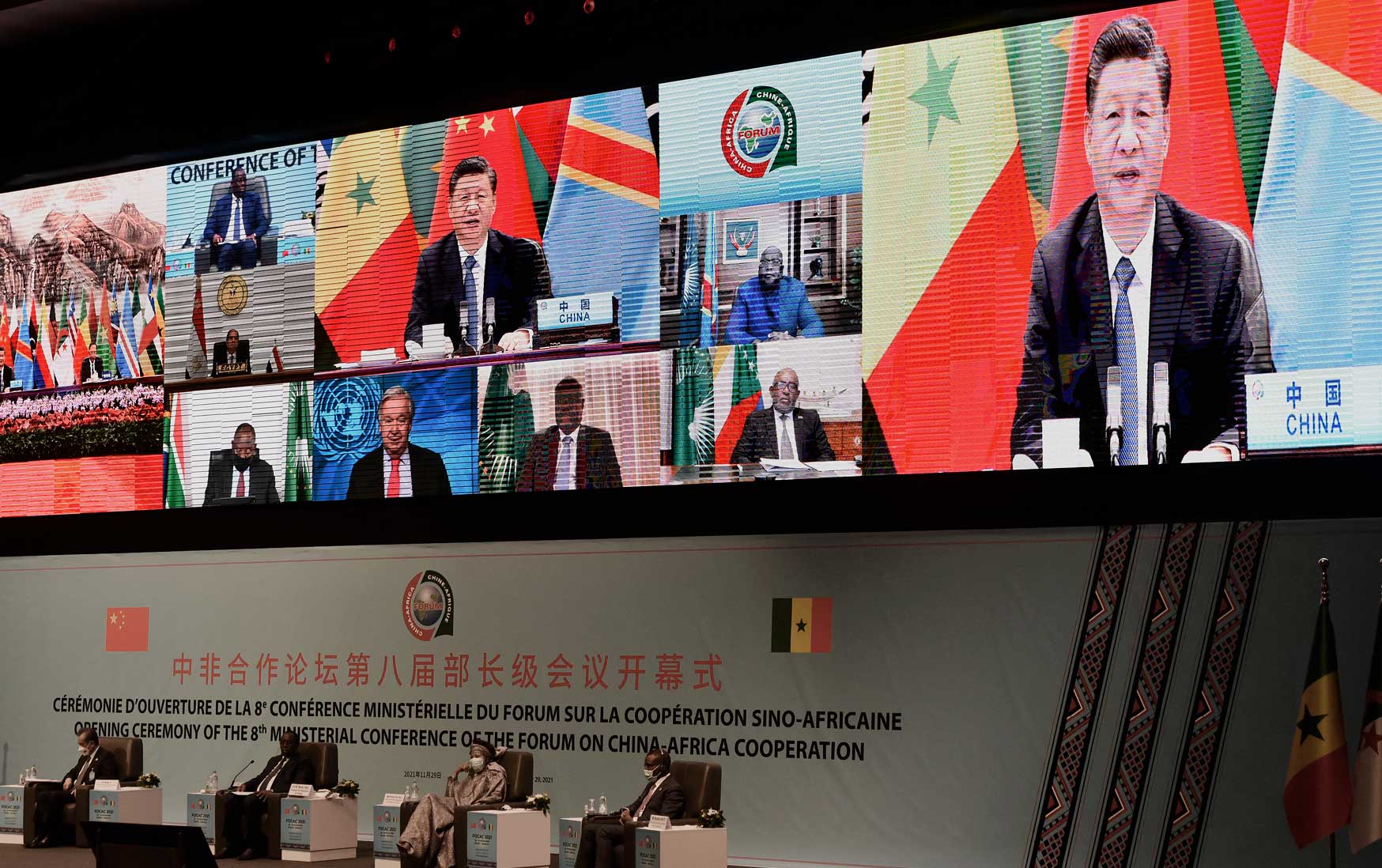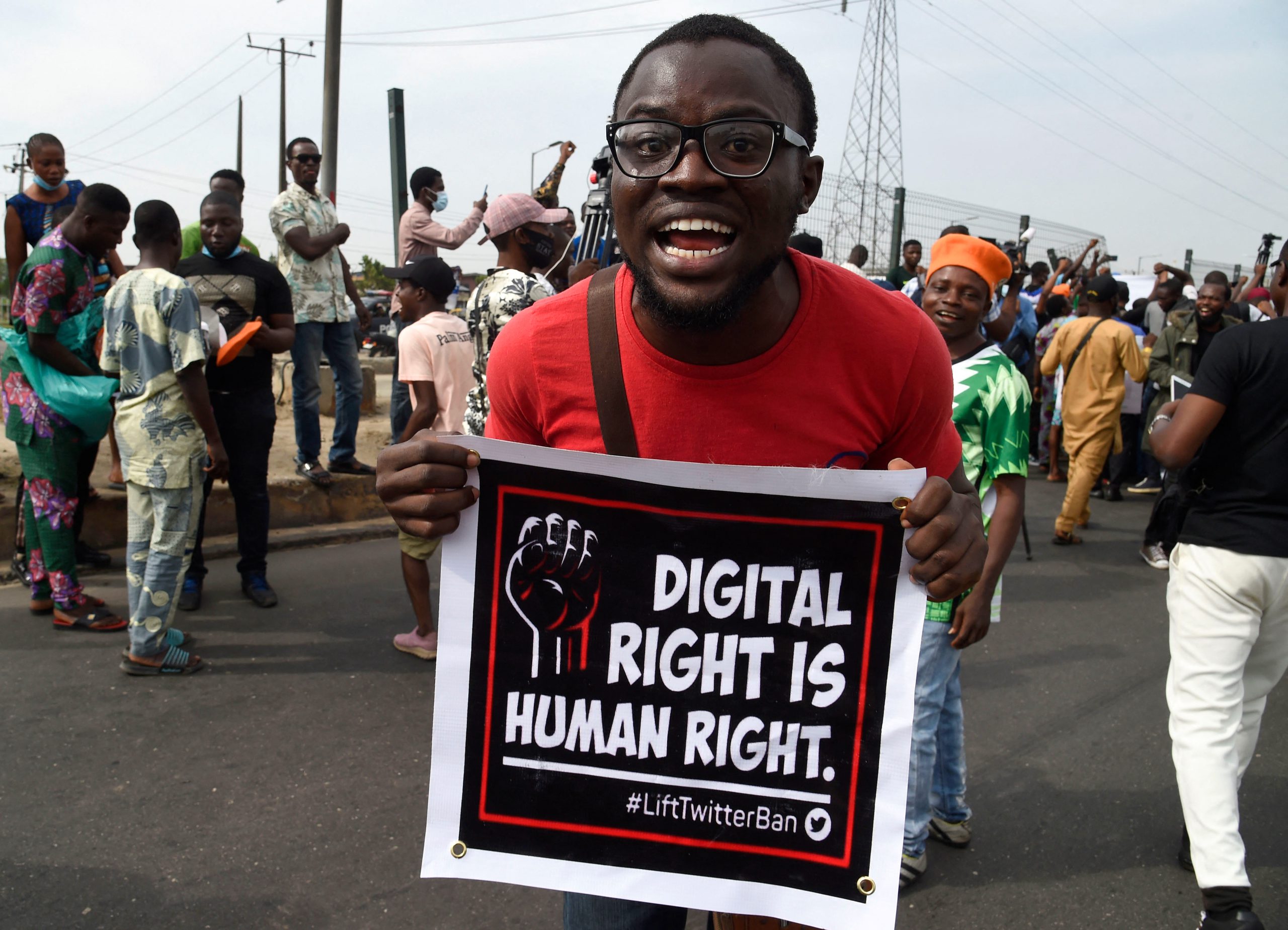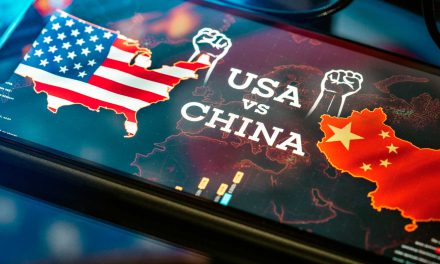Growing techno-nationalism by the US and China puts Africa’s quest to close the digital divide at risk. The African Union’s Digital Transformation Strategy recognises that digital infrastructure is the bedrock of the digital economy and is necessary to successfully implement initiatives such as the African Continental Free Trade Area.
Although access to the internet is improving, there is a divide between rural and urban areas. A 2021 report by the AUC and OECD shows that internet usage statistics are considerably higher in urban areas, which ultimately leaves out a considerable amount of the population who primarily live in rural settings. For Africa to bridge the digital divide it desperately needs to increase its digital infrastructure, improve digital skills on the continent and create an enabling policy environment.
However, the dream of digitally transforming the continent will remain elusive due to the competition between the US and China. For African countries, building a responsive regulatory and policy environment and increasing digital infrastructure means diving into the choppy waters of geopolitics; specifically, the techno-nationalist tendencies of the US and China. The complex nature of hardware supply chains and the mutable nature of data means that geopolitical considerations put African states in a precarious position.
The current digital ecosystem is driven primarily by the US and China. Both countries are responsible for providing physical infrastructure and the standard-setting in internet and data governance. This means that African countries cannot build their digital economy without engaging either country.

President Joe Biden and Gina Raimondo, Secretary of Commerce, meet with business leaders and bipartisan governors at the White House in March this year. Photo: Photo: Doug Mills-Pool/Getty Images
In recent years the China-Africa relationship has become a topic of discussion, with many commentators zeroing in on China’s infrastructure loan agreements. However, the Chinese government has stepped in to provide much-needed extra-regional investment in Africa’s digital infrastructure, which incidentally falls within China’s Belt and Road Initiative (BRI), including the Digital Silk Road. China’s involvement in Africa directly competes with US global interests and highlights their divergent economic approaches.
The Chinese are the primary funders of Africa’s digital infrastructure backbone. According to a 2020 article by Bianca Wright, more than 50% of Africa’s 3G systems are built by Huawei and the ZTE (ZhongXing Telecommunication Equipment) Corporation. In 2019, Amy MacKinnon reported that Huawei built approximately 70% of the 4G networks on the continent.
The need for, and profitability of, pan-African data centres grows more acute as 4G and 5G technology becomes nearly ubiquitous. Africa’s data centre capacity is minuscule, with most of Africa’s data going through Europe’s centres. Huawei has responded to this need by including data centres as part of its offering. In 2021 Senegal became one of the first African countries to take up this offer and build its own data centre.
In a white paper, China and Africa in the New Era: A partnership of equals, released two days before the 2021 Forum on China-Africa Cooperation (FOCAC), the Chinese state council underscored its efforts to help Africa close the digital divide, including the building of digital infrastructure such as submarine cable projects, which connect Africa to Europe, Asia, and the US, optical fibre, and the establishment of a public cloud service that covers the continent. In a 2019 article written for African Business, Jonathan Hillman succinctly explained that the BRI is “ …also a vehicle for China to write new rules and establish institutions that reflect Chinese interests and reshape ‘soft’ infrastructure”.
Narratives around modernity and development are tightly linked to the harnessing of contemporary technologies. For African states that are still climbing the development curve, access to technologies and technology transfers are crucial to their active participation in the modern economy. For more prosperous countries, technology dominance signifies its power and identity.
The US and China’s dominance in the digital ecosystem shape the global regulatory environment because much of the world’s intellectual property is owned or controlled by these countries. As a result, current rules on data protection have become a hotbed for contestation between those who prefer the free flow of all information and those who believe that information should be regulated to prevent its abuse by non-state actors. In reality, data protection laws do not necessarily protect individual identities, as premised in the various approaches to data protection, but instead, create prisons around the transfer of practical knowledge.

Chinese President Xi Jinping delivers his speech via videolink during the China-Africa Cooperation (FOCAC) meeting in Dakar, Senegal, on November 29, 2021. Photo: SEYLLOU / AFP
Looking at the current rules framework of international relations, the US and China have become more insular under the guise of security concerns when, in reality, the drivers are arguably more ideological. The US, for instance, does not have formal regulatory oversight when it comes to data collection because of its liberal capitalist approach. In line with Shoshana Zuboff’s description of surveillance capitalism, the result is that corporate actors have substantial powers over citizen data. On the other hand, China’s citizen data is primarily controlled by the central government, and it follows a state-centric approach in host countries. The Chinese approach has led to accusations by western countries of espionage and other forms of surveillance. The Chinese have refuted numerous claims put forward by western media that they use Huawei technology, particularly cameras, to spy on the African Union headquarters.
African countries are compelled to choose between allowing their citizens’ data to be controlled by corporate actors, with little room for recourse, or selecting the Chinese model that underscores the need for citizen data to be under the host governments’ authority. For citizens living in repressive African states, the latter option is physically dangerous.
These different regimes are a barrier to trade in data and cloud services, restricting information flow, limiting growth and scientific collaboration, and jeopardising critical digital infrastructure development. For instance, a US-backed consortium won the bids to build the 5G networks in Angola and Ethiopia but had to back out of the latter contract because the country refused to block Huawei components from being used in the network. Kenya’s Safaricom, powered by Huawei, ultimately built the network.

Nigerian activists call for nationwide protests over the ban of US social media platform Twitter by the government of President Muhammadu Buhari on 12 June 2021. Photo: Pius Ekpei/AFP
In an article for Foreign Policy in May this year, ‘While America Slept, China Became Indispensable’, Howard W French correctly observed that: “To a degree that few in the West yet understand, this will be the most important domain of great-power competition in the decades ahead: meeting people where they live and addressing the practical problems that dominate their lives – things like helping connect people through infrastructure and improved public services, broadening prosperity, and protecting the environment. Old rhetorical standbys like democracy and human rights are important, but it is hard to imagine them flourishing without foundations like these.”
African countries cannot afford to be embroiled in the techno-nationalist impulses of much wealthier countries. What they need is increased infrastructure and knowledge transfers. Ironically, more developed countries did not have to deal with similar restrictions when building their own digital infrastructure. As the Biden administration continues – and intensifies – its technological cold war with China, African countries will have to take stock of what is at stake in the long term and continue to look for a middle ground.
[activecampaign form=1]










